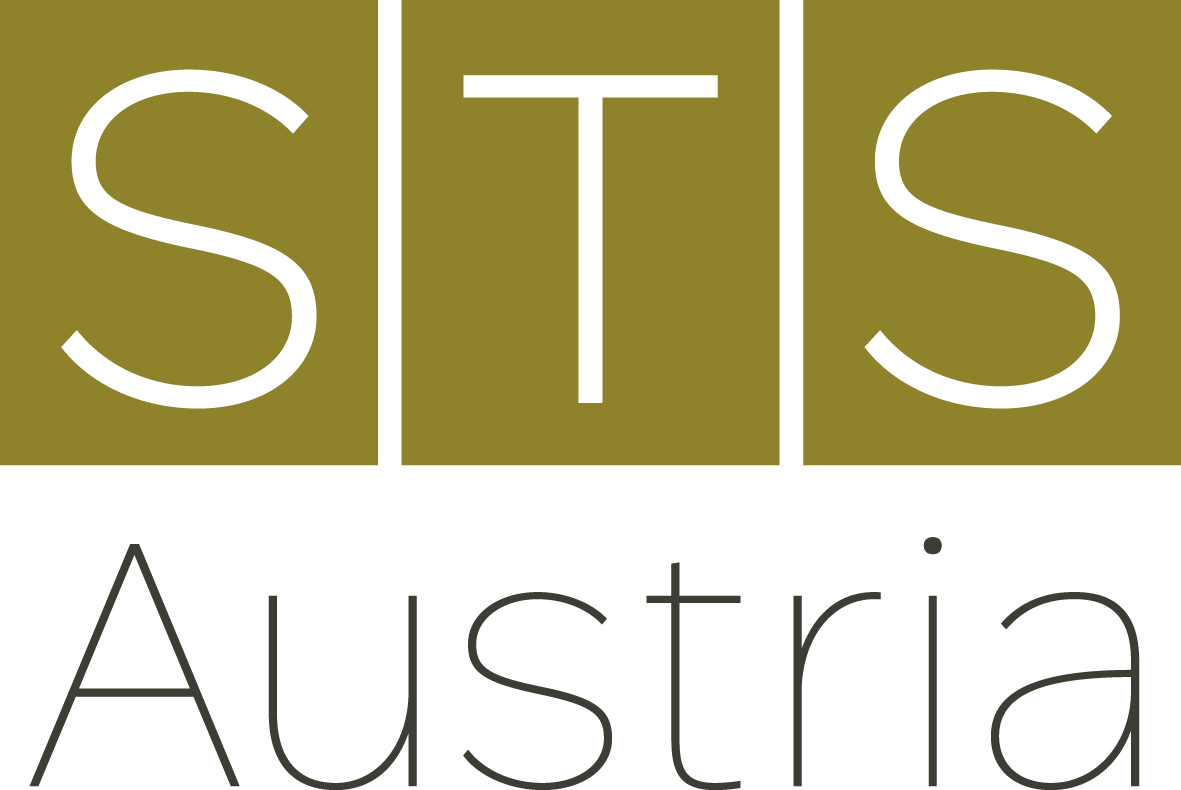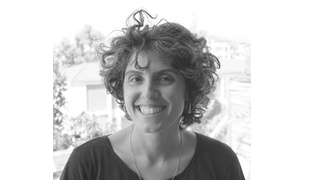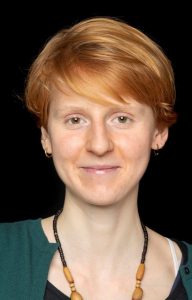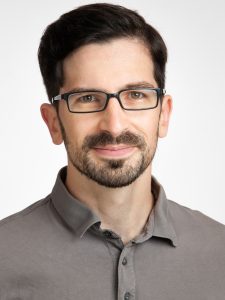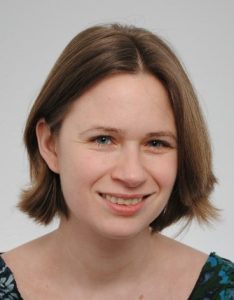On this page, we showcase outstanding publications, master’s and PhD theses by young scholars in Science and Technology Studies.
Awardees of the second STS Austria Prize for best publications by early career researchers
Auriane Van der Vaeren (2022): the political deepfake: a dance between conceptions, materialisations, and policy approaches
(Master’s Thesis, Universität Wien)
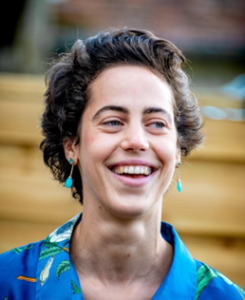
Foto: Véronique Massonet, Térébenthine et Gomme Arabique
Using intentionally deceitful information to sow public distrust in public institutions is an eternally reoccurring event. Political disinformation is not only a perpetual worry in terms of undermining the reputation of public figures and institutions, but more significantly in terms of hampering a welfare state. Technological advances allow to create political disinformation out of the blue; deep learning can generate fake images, videos, sounds, and texts with incredible authenticity. The advent of deepfakes—in conjunction with an ever-digitalising information ecosystem—leads many to assert that democracies are at the mercy of political disinformation. However, political deepfakes affect democracy is inconclusive and tragedy narratives are not empirically founded. Following a scholarly call for more theoretical work, I used Karen Barad’s new materialist postulate to conceptually re-explore the political deepfake in an arguably more realistic way. It is not least of importance since Baradian new materialism exposes how the fact-checking ideal is illusory, even though fact-checking constitutes a central pilar of the EU policy approach to deepfakes. And not least of importance since the EU approach is based on the empirically invalid tragedy narrative. The argument further goes that while the EU seeks to boost public trust in public institutions, the EU intrinsically inhibits such blossoming of trust because it neglects civil society by neglecting its ability to navigate the digital space. In proposing a policy approach based on this idea of trusting civil society, the thesis offers a suggestion for how this could be achieved.
Auriane Van der Vaeren is looking at the online information space, how do media technology, ICT, and policy redefine our sense of sociality and trust? That is what drives her curiosity.
Paul Trauttmansdorff (2022): Imagining, Enacting, and Justifying Future Borders
(PhD Dissertation, Universität Wien)
Imagining, Enacting, and Justifying Future Borders is an ethnographic investigation into the digitization of Europe’s border regime. It explores how sociotechnical visions of future borders propel the expansion of databases in the European governance of human mobility. In particular, the study provides a detailed analysis of the sites, operations, and projects of one of the fastest-growing actors in the border regime: the European Union Agency known as eu-LISA. As the responsible body for large-scale IT systems in migration and border control, this agency serves as a window into the core visions, technologies, and practices that imagine, enact, and justify digital borders in Europe. Imagining, Enacting, and Justifying Future Borders brings science and technology studies to the study of borders and mobility. While academic contributions have begun to emphasize the techno-material aspects of bordering, less attention has been devoted to the ways in which (digital) infrastructure encodes and transmits shared visions of future borders. Therefore, the thesis explores how imagination materializes in the large-scale development of border infrastructure. It employs the methodological repertoire of Situational Analysis to uncover the social desires, hopes, and future promises—alongside imagined threats and perils—that are embodied in eu-LISA’s approaches to border security. Consequently, the thesis unveils the role of imaginations as subtle compositions that lie at the core of the border regime: they articulate the rationale and justifications behind reshaping mobility governance, underpin the policies that render migration as a digitized, actionable, and governable object, and encode the principles of exclusion and dehumanization.
Paul Trauttmansdorff works currently as a postdoctoral research fellow at the European New School of Digital Studies, European University Viadrina Frankfurt (Oder).
https://europeannewschool.eu/ens-research#fellowship
Nikolaus Pöchhacker (2021): Rule(s) of Recommendation
(PhD Dissertation, Technische Universität München, MCTS)
Much has been written about algorithms and algorithmic systems. However, the debate regarding the societal impact of algorithms often mobilizes the imagination of the all-mighty algorithm beyond our control. In contrast, my dissertation showcases the potential of STS concepts and sensibilities when applied to algorithms as a socio-technical phenomenon – and how these concepts can help to address algorithms beyond a techno-deterministic perspective. To do so, I conducted an extensive ethnography on the development of a novel machine learning powered recommendation system for a public broadcaster. Recommendation algorithms are seen as an issue for contemporary democracy, as they can foster the emergence of filter bubbles and echo chambers. The public broadcaster tried to react to his challenge by developing a recommender algorithm and adheres to the democratic ideal of diversity in information provision. In my work, for which I became part of the development team responsible for the new algorithm, I show how the development of the new recommender system did not just involve technical aspects, but became an issue for and of the organizational structure of the broadcaster involving negotiations and aliments between distributed actors. As such, the enactment of a democratic algorithm is not just an issue of “value by design” but is rather the outcome of change in a wider socio-technical system. As such, my dissertation highlights the potential of STS to illustrate that it could be otherwise, but also highlights the productive potential of STS to guide us towards possibilities to leverage change in digital societies.
Nikolaus Poechhacker is a Post-Doc Senior Scientist at the Digital Age Research Center (D!ARC), University of Klagenfurt, and research fellow at the Department of Innovaton and Digitalisation, University of Vienna.
https://www.aau.at/team/poechhacker-nikolaus-helge/
https://id.univie.ac.at/en/team/research-fellows/poechhacker-nikolaus/
Honorable mentions for high-quality publications by early career researchers (2023)
Ekaterina Osipova (2021): Ambiguous Singular, Tangible Multiples: Trans People’s Enactments of PCOS-Care.
(Master’s Thesis, Universität Wien)
Within the discourse on and care for polycystic ovary syndrome (PCOS) – an endocrine syndrome commonly characterized by elevated testosterone levels and plurality of ovarian cysts – trans people with this diagnosis remain mostly invisible. However, given the uncertain and controversial nature of PCOS, this absence perpetuates the health-disparities resulting from medicine’s pathologizing gaze on trans bodies and identities even further. Through the lens of ontological politics sensitized by feminist STS scholarly work, specifically situated knowledge and care, I conducted six narrative interviews with trans and gender-diverse people based in Germany to explore their experiences with the medical system and their needs, wishes, and strategies for PCOS-care. When seeking medical care, participants were confronted by a singularizing enactment of PCOS imposing a set of pathologizing and gendered norms upon their PCOS-bodies, while neglecting, ignoring and de-problematizing their individual needs and concerns. Conversely, participants enacted PCOS as multiple, situated, non-linear and embodied, unfolding along different temporal trajectories and embedded within diverse constellations of human and non-human actors. Along these multiple lines, participants employed various practices that twist, subvert and reinterpret medical and socio-cultural narratives on their bodies and identities, ultimately queering PCOS. Discussing the findings along broader material infrastructures of care, I argue that tending to trans peoples’ embodied knowledges and their queered PCOS enactments bears potential of shifting the focus beyond the ambiguous singulars as produced by standardized medical practices, and, instead create tentative, flexible, and affective multiples that are tangible for the individual and render PCOS-care more inclusive.
Carsten Horn (2022): Regulating Digital Health. How does an App Become a Digital Health Application?
(Master’s Thesis, Universität Wien)
Digital health has arguably been a core topic of Science and Technology Studies (STS) in recent years. A considerable body of research has been investigating the promissory discourses on digital health and the socio-material practices that enact it. A few notable exceptions notwithstanding, neither of these lines of inquiry have explored its regulation. In my Master’s Thesis, I have taken the case of Digital Health Applications (DiGA) in Germany, a frontrunner and potential blueprint for the digitalization of healthcare, to address this gap. The approval process through which a health app becomes a DiGA particularly attracted my attention. It exhibits the entanglements of science, technology, and society that STS is interested in: (1) the way one particular society regulates a (2) (digital) technological artifact that (3) incorporates scientific, particularly medical knowledge. I develop an innovative theoretical framework that allows us to think about regulatory processes anew by connecting Latour’s legal sociology with the notion of “reality test” from the Sociology of Conventions and Testing. This framework conceptualizes the approval process as a (material) practice of testing which effects the ontological transition of an ordinary app to a legal mode of existence. One core finding of my research is that the regulation of DiGAs integrates four ways of responding to the complexities of the fluid ontology of digital apps, for instance, by pharmaceuticalizing them. Speaking to interventionist approaches within STS, my thesis thus identifies regulation as one point of intervention for digital health to become otherwise.
Artemis Anna Papadaki Anastasopoulou (2019): Plastic matters. Material politics of plastic at the Environment Agency Austria.
(Master’s Thesis, Universität Wien)
Plastic was a success story of the 20th century, a material that revolutionized industry and expanded consumption. However, plastic has become a current top environmental concern since plastic particles found in oceans, rivers, or soil, pose uncertain risks to humans and wildlife. From an STS perspective, the materiality of plastic has been described as a process enacted in divergent environments. This thesis builds on this perspective, and uses a post-ANT lens to ask: How is plastic enacted as a matter of concern in the Environment Agency Austria? In the past years, there have been discussions on how to regulate plastic on a European level which culminated in the EU Plastics Strategy published in 2018. The Environment Agency Austria (EAA) is not only a leading figure on plastic discussions in Austria, but an active actor in major European arenas. The EAA works at the intersection of science and policy; they analyze microplastics in laboratories, but also engage in policy consultancy. I conducted interviews with people working at the EAA on plastic and in addition, analyzed their publicly available reports. I describe the multiple sites of concerns, the gatherings of humans, plastic, discourses, practices, material properties and material arrangements, in which plastic becomes a matter of concern through the enactment of its material properties. I also discuss the importance of defining microplastics and how plastic resists such definitions. Lastly, I explore the instances of how plastic becomes a simultaneous visible and invisible threat. In conclusion, this thesis touches upon issues of what it means to classify, define and regulate plastic in a multiple world and how we could engage in this multiplicity of plastic in regulation in order to explore deeper the material entanglements of plastics, humans, nonhumans and environments in contemporary societies and envision a ‘common world’ with plastic.
Artemis Papadaki Anastasopoulou is currently a doctoral researcher at the Department of Science and Technology Studies at the University of Vienna:
https://sts.univie.ac.at/ueber-uns/artemis-papadaki-anastasopoulou/
Michael Kriechbaum (2019): Institutional dynamics in renewable energy diffusion. Beyond the boundaries of organisational fields.
(PhD Dissertation, Karl-Franzens-Universität Graz)
Although global investments in renewables have increased substantially, the electricity sectors will not be able to fully transition towards renewable energy sources until the sectors inert institutional structures, which have been established over many decades and tailored to fit centralized and fossil fuel-based supply systems, are overcome. The main objective of this dissertation work was to improve the understanding of how renewable energy technologies interact with these structures. An analysis was performed to determine how organisational fields that emerge around renewables (and carry new institutional logics) both are influenced by and influence their broader institutional environment. The former was studied by analysing so-called systemic problems that have hampered the diffusion of distributed solar photovoltaics in South Africa. The latter was investigated by examining the natures and roles of widely shared expectations; light was shed on the specific dynamics of expectations that have emerged regarding different renewable energy technologies (including photovoltaics, wind power and biogas) in Germany and Spain. By analysing systemic problems of the diffusion of distributed solar photovoltaics in South Africa, it was possible to illustrate the strong context dependence of emerging organisational fields. The ways in which the wider institutional environment can trigger the creation of systemic lock-in situations and severely constrain the development of organisational fields are shown. The results of the analyses of expectations demonstrate that widely-shared expectations play key roles by enabling emerging organisational fields to interact with and also change their wider institutional environments. However, the analysed expectations changed rapidly over time and not only strengthened but also limited the ability to modify existing structures.
Related publications:
Kriechbaum, Michael; Brent, Alan C.; Posch, Alfred (2018): Interaction patterns of systemic problems in distributed energy technology diffusion: a case study of photovoltaics in the Western Cape province of South Africa. Technology Analysis & Strategic Management 14 (2), pp.1-15.
Kriechbaum, Michael; López Prol, Javier; Posch, Alfred (2018): Looking back at the future: Dynamics of collective expectations about photovoltaic technology in Germany & Spain. Technological Forecasting and Social Change 129, pp. 76-87.
Michael Kriechbaum is currently a post-doctoral researcher at the Science, Technology and Society Unit at TU Graz:
https://www.tugraz.at/arbeitsgruppen/sts/about-us/team/
Awardees of the first STS Austria Prize for best publications by early career researchers
Ruth Ingeborg Falkenberg (2019): Downward-facing dog meets randomised controlled trial: Investigating valuations in medical yoga research.
(Master’s thesis, Universität Wien)
In my thesis, I examine how medical researchers bring together yoga and modern biomedicine in the framework of randomised controlled trials (RCTs). Building on the assumption that setting up a research design involves different acts of valuation, I investigate the situated valuations that researchers perform in negotiating the encounter between yoga and biomedicine methodologically as well as theoretically. Moreover, I reconstruct how these concrete valuations are related to broader institutional, structural, and discursive regimes of valuation. Theoretically, my thesis thus brings together the investigation of research in the fields of biomedicine and complementary and alternative medicine from the perspective of Science and Technology Studies with a Valuation Studies inspired approach. Methodologically, I approached my research questions through qualitative interviews with researchers conducting RCTs on yoga, which were informed by an exploratory document analysis.
In my thesis, I show that yoga manifests in medical research as a multiplicity. I reconstruct five regimes of valuation influencing the researchers’ work, where especially two regimes related to evidence-based medicine (EBM) and biomedical knowledge seem to strongly influence the researchers’ practices. Within this framework, researchers value both more and less comprehensive forms of yoga for different reasons, and they tinker with yoga on a practical and on a theoretical level, thus adapting yoga and its explanations to different contexts. Similarly, they tinker with methodology in various ways, thereby making it possible to investigate yoga in the RCT framework and simultaneously doing justice to their appreciation of methodological diversity beyond the normative ‘gold-standard’.
Overall, my thesis highlights the dominance of the methodological framework of EBM and of biomedical understandings, while also illustrating the multiplicity of values that exists in medical yoga research, and the innovative potential that is inherent to heterarchical constellations of worth, were different valuations exist alongside each other. My work thus problematizes crude hierarchical orderings of worth, of methods, and of knowledge in medical research, and emphasises the benefits that seem to arise from giving room to more complex valuations.
Ruth Falkenberg ist currently a doctoral researcher in the research platform Responsible Research and Innovation in Academic Practice at the University of Vienna:
https://rri.univie.ac.at/personen/ruth-falkenberg/
Nils Matzner (2019): Governance und Verantwortung bei Climate Engineering.
(PhD Dissertation, Alpen-Adria-Universität Klagenfurt)
The international climate target of two, if possible 1.5°C global warming puts climate policy underpressure. The target might not be met without employing some high-risk methods of climate engineering (CE) which gain ever more attention in climate political discourses since more than a decade. CE is defined as the deliberate intervention into the climate system in order to reduce global warming. This includes technologies such as the injection of sulfur aerosols into the upper atmosphere and fertilizing the ocean for enhanced carbon uptake. On the one hand, CE offers the chance to reduce global warming while on the other hand, it comes with major risks and uncertainties.
The emerging CE technologies demand certain forms of governance and responsibility. Governance of CE deals with problems of a yet underdeveloped international regulation. Anticipatory Governance in particular offers a strategy for capacity building for a forward looking and reflexive way of dealing with CE. Furthermore, science, policy, and civil society are confronted with various questions of responsibility concerning CE. Whereas responsible research and innovation remains a huge task, broader questions of ethical, legal and political responsibility arise. The six articles presented in this cumulative dissertation deal with these questions. The methodology is largely oriented on discourse research, but also on social simulations and theoretical argumentation.
The results are discussed in relation to the German priority program for CE (SPP 1689) funded by the German Research Foundation. The SPP 1689 started as a responsibility initiative and dealt with various governance and responsibility problems. The analysis of the SPP and CE discourses aids to develop anticipatory governance and responsible research in order to mitigate negative consequences of CE.
For an example of the publications featured in Nils’ PhD dissertation, see:
Matzner, Nils; Barben, Daniel (2020): Climate Engineering as a Communication Challenge: Contested Notions of Responsibility Across Expert Arenas of Science and Policy. In: Science Communication 42 (1), pp. 61–89.
Nils Matzner is currently a post-doctoral researcher at the Munich Center for Technology in Society (MCTS) at TU Munich:
https://www.mcts.tum.de/en/people/nils-matzner/
Andrea Schikowitz (2017): Choreographies of Togetherness.
Re-Ordering Collectivity and Individuality in Transdisciplinary Sustainability Research in Austria.
(PhD Dissertation, Universität Wien)
For more than twenty years debates on which kind of knowledge is needed for adequately dealing with overarching environmental and sustainability challenges have been going on. It is claimed that opening up science towards societal problems and different kinds of knowing, as well as engaging in new relations and forms of togetherness with different actors is inevitable. This conviction has entered ever new initiatives and programs aiming at fostering new and more open kinds of knowledge pro-duction, as well as a body of literature dealing with its principles and applications. Transdisciplinarity is such an approach that does not only demand collaboration across disciplinary boundaries but also an integration of extra-scientific actors into the research process.
However, in spite of a continuous expression of political will of and conceptual preoccupation with inclusive, collective and process-oriented forms of research, it can be asked if a broader transformation of knowledge production can be observed in practice. In turn, what has increasingly entered contemporary science is a focus on individual productivity of researchers, primarily measured according to the amount of standardized output (mostly publications). Thus, currently researchers are in a tension between claims of collective and open research on the one hand, and the requirement to succeed individually within increasing competition on the other hand.
For understanding how new forms of knowledge production are translated into practice (or not), I thus investigate how researchers imagine their opportunities within a tension of collective research and individual assessment and how they cope with it in their working practices. Analytically, I focus on ‘choreographies of togetherness’, understood as modes of coping with tensions and incoherence between different be-longings and different collective and individual practices. Choreographies can be regarded as practices that stabilise or change social orders. In this way, also non-linear and unintended effects of changing demands and organization of knowledge production get accessible for analysis.
The empirical case is a huge Austrian research program in the area of transdisciplinary sustainability research that elevated the integration of extra-scientific actors into research to a central funding criteria. Besides analysing different program and project documents, interviews and focus groups with project participants were conducted and ethnographic observations in project meetings took place.
Andrea Schikowitz is currently a post-doctoral researcher at the Munich Center for Technology in Society (MCTS) at TU Munich:
https://www.mcts.tum.de/en/people/andrea-schikowitz/
